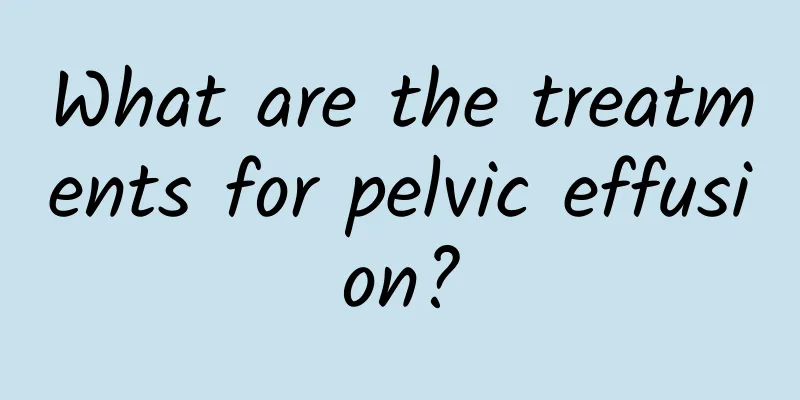Not having any success with weight loss and don’t want surgery? Gastroscopy for weight loss can solve the problem

|
With Taiwan's westernized lifestyle and eating habits, including high-fat, high-sugar, low-fiber and processed food intake, coupled with high work pressure, long working hours and no time for exercise, the number of obese people in Taiwan has increased year by year. According to statistics from our Ministry of Health and Welfare, the number of obese people over the age of 45 is currently over 50%. Taiwan has not only entered an aging society, but has also become an unhealthy obese country. It is no wonder that obesity-related diseases have become the top ten causes of death in Taiwan, including: malignant tumors, hypertension, diabetes, hyperlipidemia, cardiovascular and cerebrovascular diseases, kidney disease, chronic liver disease and cirrhosis, etc., which have a huge impact on the health and life expectancy of the people. Therefore, we must seriously face this chronic disease that can kill people when they are fat. The first priority in controlling obesity is to adjust your lifestyle and eating habits and exercise regularly. However, most people still cannot lose weight effectively. Traditional treatments for these patients with uncontrollable obesity recommend surgical removal of part of the stomach or bypass surgery to reduce appetite, food intake and nutrient absorption, thereby achieving weight loss. However, although surgery is very effective in weight loss, it is relatively invasive and requires time to recover after surgery. There is also the possibility of stenosis, rupture and bleeding at the sutures, and even the need for another surgery to deal with complications. *There are three commonly used endoscopic techniques: intragastric botulinum toxin injection, intragastric balloon placement and sleeve suture gastrectomy * In recent years, with the advancement of endoscopic medical equipment and technology, many minimally invasive endoscopic techniques through natural orifices (oral and anal) can replace traditional invasive surgical procedures to treat many diseases. In the application of weight loss treatment, the more commonly used endoscopic techniques are the following three: intragastric botulinum toxin injection, intragastric water balloon placement (as shown in Figure 1) and sleeve suture gastric reduction (as shown in Figure 2), which can achieve an effect of 5-20% excess weight loss. The following is a brief introduction to the methods and effects of the two endoscopic weight loss surgeries. Intragastric balloon placement: Under general anesthesia, a silicone balloon is placed into the stomach through the mouth using a gastroscope, and then 400-700 ml of saline is injected into the balloon to reduce stomach volume, appetite and food intake. A colored solution will be injected at the same time as the saline solution as a preventive measure to detect a ruptured water balloon. If the vomiting, urine or stool color is abnormal, it may be caused by an abnormal rupture of the water balloon, so that early detection and medical treatment can be sought. Regardless of whether the weight loss effect is achieved, the intragastric water balloon needs to be removed every 6 months. In addition, there is about a 10% incidence of side effects, including nausea, vomiting, abdominal pain, gastroesophageal reflux, hiccups, indigestion, upper abdominal distension, dehydration, diarrhea, flatulence, etc. Serious side effects include poor tolerance to the water balloon in the stomach, severe dehydration, gastrointestinal obstruction, gastric perforation, aspiration pneumonia and infection, etc. A small number of cases may require the water balloon to be removed early using a gastroscopy or surgical method. take out. A water balloon is placed in the stomach using a gastroscope to reduce the volume inside the stomach. (Photo provided by Far Eastern Hospital) Endoscopic sleeve suture gastric reduction: Under general anesthesia, an endoscope (commonly known as a gastroscope) equipped with an "endoscopic suturing system" is used to enter the stomach through the mouth. The stomach is folded and sutured like a purse, without damaging the stomach tissue or removing the gastric glands. The stomach is reduced in size, appetite and food intake, just like a surgical sleeve gastrectomy. The incidence of side effects is about 25-30%, most of which are mild and resolve naturally, including abdominal pain, nausea, and vomiting. Less than 1-5% may cause upper gastrointestinal bleeding, fever, paragastric effusion, pleural effusion, abdominal gas, etc., which may require surgical intervention or use of gastroscopy to untie the sutures and remove them if necessary. Upper - Using gastroscope, the gastric wall is sutured in contralateral sleeves to reduce the gastric volume. Lower left - suturing device at the front end of the gastroscope. Lower right - The state of the stomach wall after suturing. (Photo provided by Far Eastern Hospital) Currently, the National Health Insurance does not cover endoscopic weight loss technology, which requires out-of-pocket expenses and is not suitable for all obese patients. The following medical histories need to be discussed with a professional endoscopist for feasibility, such as: history of gastric surgery, severe gastroesophageal reflux, peptic ulcer, esophageal varices, upper gastrointestinal structural abnormalities, hiatal hernia, gastric tumors, Crohn's disease, cirrhosis, abnormal coagulation function, alcohol addiction, drug abuse, mental illness, and history of allergy to hydrogen ion pump blockers. All of these need to be carefully evaluated. Gastroscopy weight loss surgery can provide you with no wounds on your body surface, quick recovery after surgery, short hospital stay and effective weight loss results. It can be one of the best options for you to control your weight. |
Recommend
Peizhen's secret recipe for losing weight: eat coix seed and mung bean and lift your legs more often
Losing weight is a national movement. Female arti...
At what age can adults get the flu vaccine?
Adult influenza vaccine is recommended for all ad...
How to induce menstruation? Share 6 common methods to induce menstruation
Women are very familiar with menstruation, but th...
Do you put the eggs in the refrigerator immediately after buying them? It turns out they were all wrong! Nutritionist Wu Yingrong debunks 4 common egg myths
Do you often buy eggs outside and put them in the...
How to pay attention to details to prevent dysmenorrhea
Dysmenorrhea is a gynecological disease, and many...
What should I pay attention to after uterine effusion surgery?
Although uterine effusion is not a particularly s...
Greasy midnight snacks, bad intestinal bacteria... 5 major occupations prone to colon polyps
Office workers often stay up late to work overtim...
Lowering cholesterol, improving fatty liver, 4 major benefits of mulberries! Nutritionist Hong Ruopu: 4 tips for choosing mulberries
Office workers who often eat out for three meals ...
What is considered malignant uterine fibroids? Is malignant uterine fibroids uterine cancer?
What is considered a malignant uterine fibroid? I...
Is a 2.0 cm ovarian cyst serious?
Is a 2.0cm ovarian cyst serious? An ovarian cyst ...
Differentiate the types of cervical erosion and avoid excessive treatment
After a physical examination, you often hear the ...
What are the causes of Bartholinitis?
Bartholinitis is a common gynecological disease, ...
What lifestyle habits lead to uterine fibroids? What are the things that easily lead to uterine fibroids?
What lifestyle habits lead to uterine fibroids? W...
Interval walking is more powerful for exercising thighs and improving muscle endurance
Are you still doing the same old normal walking? ...
Is it normal to have menstruation 20 days after medical abortion?
Medical abortion is mainly a method of completing...









